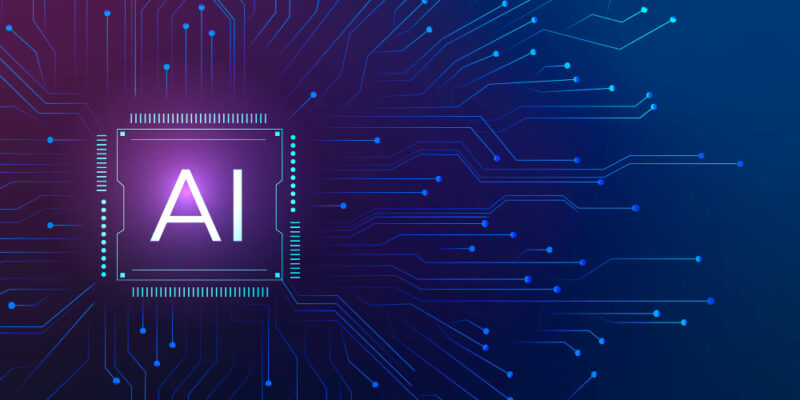The financial industry is undergoing a transformative revolution driven by two groundbreaking technologies: artificial intelligence (AI) and blockchain. While each of these technologies individually holds immense potential, their convergence creates a powerful synergy that promises to reshape the financial landscape. This article explores how AI and blockchain are revolutionizing finance, their combined impact, and the future possibilities they hold.
The Rise of AI in Finance
Artificial intelligence in Finance has been a game-changer in various industries, and finance is no exception. AI’s ability to process vast amounts of data, recognize patterns, and make predictions with high accuracy has made it indispensable in the financial sector. Here are some key areas where AI is making a significant impact:
1. Risk Management
AI has revolutionized risk management by enabling more accurate and timely assessments. Traditional risk management relied heavily on historical data and human judgment, which often led to delayed or suboptimal decisions. AI algorithms, however, can analyze real-time data from various sources, including market trends, economic indicators, and even social media sentiment, to predict potential risks and recommend mitigation strategies.
2. Fraud Detection and Prevention
Fraud is a persistent challenge in finance, costing institutions billions annually. AI-driven systems enhance fraud detection by identifying unusual patterns and behaviors that might indicate fraudulent activities. Machine learning models continuously learn from new data, improving their accuracy and reducing false positives. This proactive approach allows financial institutions to detect and prevent fraud more effectively than ever before.
3. Algorithmic Trading
AI has revolutionized trading through algorithmic trading, where computer algorithms execute trades at speeds and frequencies impossible for human traders. These algorithms analyze market data, identify trading opportunities, and execute trades within milliseconds. This not only increases efficiency but also reduces the emotional bias that often affects human traders, leading to more consistent and profitable trading strategies.
4. Customer Service and Personalization
AI-powered chatbots and virtual assistants are transforming customer service in finance. These systems can handle a wide range of inquiries, from account balances to transaction histories, providing instant responses and freeing up human agents for more complex tasks. Additionally, AI enables personalized financial advice by analyzing individual customer data and tailoring recommendations based on their unique financial situations and goals.
The Emergence of Blockchain in Finance
Blockchain technology, known for its role in powering cryptocurrencies like Bitcoin, is gaining traction in the financial sector for its potential to increase transparency, security, and efficiency. Blockchain’s decentralized and immutable nature makes it an ideal solution for various financial applications:
1. Secure Transactions
Blockchain ensures the security and integrity of financial transactions by recording them in a decentralized ledger. Each transaction is verified by a network of nodes, making it nearly impossible for malicious actors to alter or tamper with the data. This enhanced security reduces the risk of fraud and cyberattacks, which are significant concerns in the financial industry.
2. Smart Contracts
Smart contracts are self-executing contracts with the terms of the agreement directly written into code. These contracts automatically execute and enforce themselves when predefined conditions are met. In finance, smart contracts can streamline processes such as loan agreements, insurance claims, and securities trading, reducing the need for intermediaries and minimizing the potential for human error or disputes.
3. Efficient Cross-Border Payments
Traditional cross-border payments are often slow and expensive due to the involvement of multiple intermediaries and complex clearing processes. Blockchain technology simplifies cross-border transactions by enabling direct peer-to-peer transfers. This not only speeds up the process but also reduces costs, making it more accessible for individuals and businesses to engage in international trade.
4. Enhanced Transparency and Compliance
Blockchain’s transparent nature allows for real-time auditing and compliance monitoring. Financial institutions can provide regulators with access to the blockchain, ensuring compliance with regulations and reducing the burden of manual reporting. This transparency also enhances trust among stakeholders, as all transactions are visible and verifiable on the blockchain.
The Convergence of AI and Blockchain
The combination of AI and blockchain holds the potential to revolutionize finance in ways that neither technology could achieve alone. Here are some of the key benefits and applications of this powerful duo:
1. Enhanced Data Security and Privacy
AI relies on vast amounts of data to function effectively, raising concerns about data security and privacy. Blockchain can address these concerns by providing a secure and transparent platform for data storage and sharing. With blockchain, sensitive financial data can be encrypted and stored in a decentralized manner, reducing the risk of data breaches. AI algorithms can then access this data securely, ensuring that privacy is maintained while leveraging the full potential of AI.
2. Improved Fraud Detection
AI’s ability to analyze and detect patterns in data, combined with blockchain’s immutable and transparent ledger, can significantly enhance fraud detection capabilities. AI can continuously monitor transactions in real-time, flagging suspicious activities for further investigation. Since blockchain records cannot be altered, any detected fraud can be traced back to its origin, providing a clear and tamper-proof audit trail.
3. Streamlined Regulatory Compliance
Compliance with regulations is a critical aspect of the financial industry. The combination of AI and blockchain can simplify compliance processes by automating data collection, reporting, and auditing. Smart contracts on the blockchain can enforce regulatory requirements automatically, ensuring that all transactions adhere to the necessary standards. AI can also analyze regulatory changes and adapt compliance protocols accordingly, reducing the burden on financial institutions.
4. Optimized Trading Strategies
The integration of AI and blockchain can revolutionize trading strategies by providing real-time, transparent, and reliable market data. AI algorithms can analyze this data to identify trends, predict market movements, and execute trades with greater accuracy. Blockchain ensures that all trading activities are recorded immutably, enhancing trust and reducing the potential for market manipulation.
5. Efficient Identity Verification
Identity verification is a crucial aspect of financial transactions, often involving lengthy and cumbersome processes. AI and blockchain can streamline identity verification by creating a decentralized and secure digital identity system. Blockchain can store verified identity credentials, while AI can quickly and accurately verify these credentials during transactions. This not only reduces verification time but also enhances security by minimizing the risk of identity theft.
Challenges and Considerations
While the combination of AI and blockchain holds immense potential, several challenges and considerations need to be addressed for their widespread adoption in finance:
1. Scalability
Both AI and blockchain face scalability challenges. AI algorithms require significant computational power and large datasets, while blockchain networks can become slow and inefficient as the number of transactions increases. Developing scalable solutions that can handle the demands of the financial industry is crucial for the successful integration of these technologies.
2. Regulatory Compliance
The regulatory landscape for AI and blockchain is still evolving, with different jurisdictions implementing varying rules and standards. Financial institutions must navigate this complex regulatory environment to ensure compliance while leveraging the benefits of these technologies. Collaborative efforts between regulators, industry stakeholders, and technology developers are essential to create a harmonized and supportive regulatory framework.
3. Interoperability
The seamless integration of AI and blockchain with existing financial systems is critical for their widespread adoption. Interoperability between different blockchain networks and AI platforms is essential to enable smooth data exchange and collaboration. Standardized protocols and interfaces can facilitate interoperability and enhance the overall efficiency of financial operations.
4. Ethical and Privacy Concerns
The use of AI in finance raises ethical and privacy concerns, particularly regarding data usage and decision-making transparency. Financial institutions must ensure that AI algorithms are fair, unbiased, and transparent in their operations. Blockchain can provide transparency and accountability, but it is essential to strike a balance between transparency and privacy to protect sensitive financial information.
The Future of Finance with AI and Blockchain
The convergence of AI and blockchain is set to redefine the future of finance. As these technologies continue to evolve and mature, their combined impact will drive innovation, efficiency, and security in the financial sector. Here are some potential future scenarios:
1. Decentralized Finance (DeFi)
Decentralized finance, or DeFi, is an emerging trend that leverages blockchain technology to create open and permissionless financial systems. AI can enhance DeFi platforms by providing intelligent analytics, risk assessment, and automated decision-making. This combination can democratize access to financial services, enabling individuals and businesses to engage in lending, borrowing, and trading without traditional intermediaries.
2. AI-Driven Investment Platforms
AI-powered investment platforms can leverage blockchain for secure and transparent transactions. These platforms can analyze market data, investor preferences, and risk profiles to provide personalized investment recommendations. Blockchain ensures the integrity of transactions, allowing investors to track and verify their investments in real-time. This combination can democratize investment opportunities and enhance portfolio management.
3. Automated Compliance and Auditing
AI and blockchain can automate compliance and auditing processes, reducing the burden on financial institutions and ensuring real-time adherence to regulations. Smart contracts can enforce compliance requirements, while AI algorithms analyze transactions for any potential violations. This automated approach enhances transparency, reduces costs, and minimizes the risk of human error.
4. Enhanced Customer Experience
AI and blockchain can transform the customer experience by providing secure, personalized, and efficient financial services. AI-powered chatbots and virtual assistants can offer instant support and tailored recommendations, while blockchain ensures the security and integrity of customer data. This combination can build trust and loyalty among customers, driving engagement and satisfaction.
Conclusion
AI and blockchain are revolutionizing the financial industry, each bringing unique capabilities and benefits. Their convergence creates a powerful synergy that enhances security, efficiency, and transparency in financial operations. While challenges and considerations remain, the future of finance with AI and blockchain holds immense potential. As these technologies continue to evolve, their combined impact will drive innovation, democratize access to financial services, and redefine the way we interact with money and investments. The financial sector is on the brink of a transformative era, and AI and blockchain are at the helm of this exciting journey.












